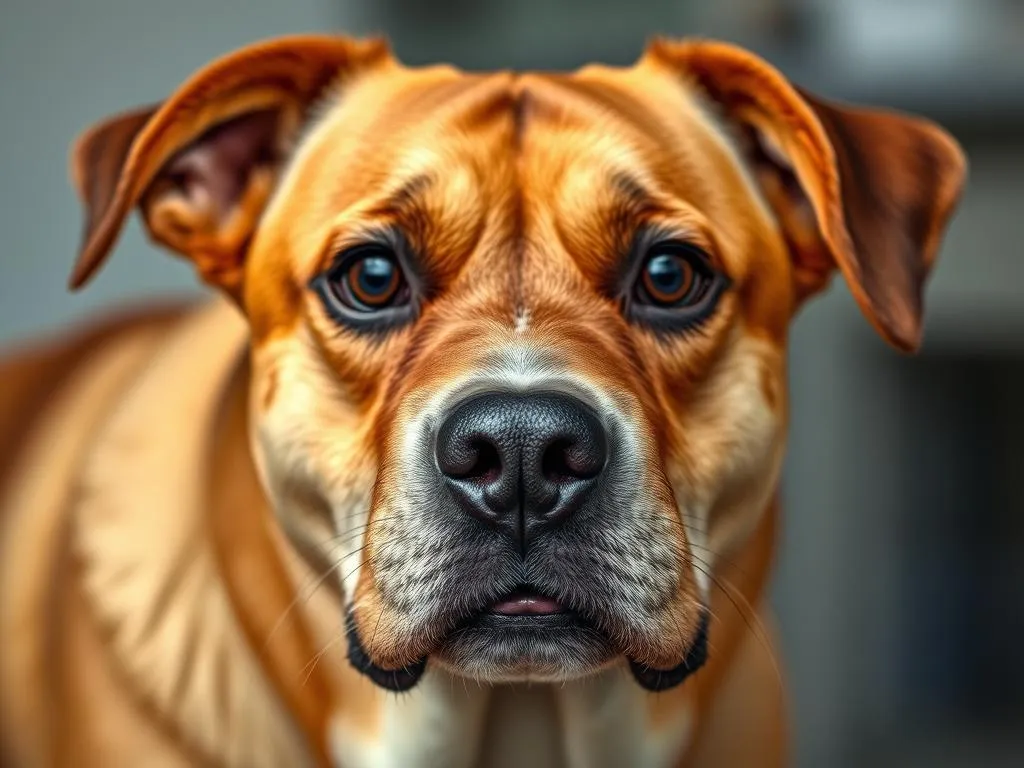
Introduction
When it comes to our four-legged companions, understanding their health is a vital part of being a responsible pet owner. Dogs can’t tell us when something is wrong, so it’s up to us to recognize the signs of potential health issues. Among various concerns, snorting in dogs often raises questions for pet owners. Many wonder if they should be worried and when it’s time to seek professional help. This brings us to the dog snorting vet answer, which will help clarify this common issue and guide you in managing your dog’s health effectively.
Understanding Dog Snorting
What is Dog Snorting?
Dog snorting refers to the noise made when a dog inhales or exhales air through its nose in a way that creates a sound. It is important to distinguish this from coughing and sneezing. Coughing is typically a forceful expulsion of air from the lungs, while sneezing involves the sudden expulsion of air through the nose due to irritation. Snorting, on the other hand, is often more subtle and can occur for various reasons.
Common Reasons for Dog Snorting
There are several reasons why your dog may be snorting:
-
Allergies: Just like humans, dogs can suffer from allergies to pollen, dust, and mold. These allergens can cause irritation in your dog’s nasal passages, leading to snorting.
-
Respiratory Infections: Conditions like kennel cough or canine influenza can cause respiratory distress, and snorting may be one of the symptoms.
-
Nasal Obstructions: Sometimes, foreign objects, nasal tumors, or polyps can obstruct a dog’s nasal passages, causing snorting sounds.
-
Anatomical Issues: Brachycephalic breeds (like Bulldogs and Pugs) are known for their short snouts, which can predispose them to snorting due to their unique facial structure.
When to Be Concerned About Snorting
While snorting can be a normal behavior, certain signs indicate that you should consult a veterinarian. If your dog experiences:
- Persistent snorting that doesn’t resolve
- Difficulty breathing or wheezing
- Nasal discharge that is discolored or bloody
- Signs of distress, such as lethargy or loss of appetite
It’s essential to seek veterinary care. Understanding when to be concerned about snorting can make a significant difference in your dog’s health.
The Importance of Regular Veterinary Check-ups
Establishing a Health Care Routine
Regular veterinary check-ups are crucial for maintaining your dog’s health. Establishing a health care routine includes keeping up with vaccinations, preventive care, and routine examinations. A vet can help you determine the appropriate vaccination schedule based on your dog’s age, breed, and lifestyle.
Understanding Your Vet’s Role
During veterinary visits, your vet will conduct a thorough examination and ask questions about your dog’s behavior and symptoms. They will look for signs of snorting-related issues and may perform specific tests to diagnose the underlying causes. This may include listening to your dog’s lungs and heart, checking their nasal passages, and assessing any visible signs of respiratory distress.
Common Diagnostic Tools Used by Vets
Veterinarians have various tools at their disposal to diagnose health issues in dogs:
-
Physical Examinations: A thorough check-up can help determine if snorting is associated with other health issues.
-
Diagnostic Imaging: X-rays or CT scans can help visualize any obstructions or anatomical issues in the nasal passages.
-
Allergy Testing: If allergies are suspected, your vet may recommend allergy testing to identify specific triggers.
Home Care and Management of Dog Health
Recognizing Symptoms at Home
As a dog owner, you play a crucial role in monitoring your dog’s health. Keeping track of the frequency and severity of snorting, along with any accompanying symptoms like lethargy or loss of appetite, is important. Documenting these changes can provide valuable information to your vet during consultations.
Home Remedies for Mild Snorting
For mild snorting attributed to allergies or environmental irritants, there are several home remedies you can consider:
-
Humidifiers and Air Purifiers: Using a humidifier can help moisten the air, making it easier for your dog to breathe. Air purifiers can remove allergens from the air, providing relief for allergy sufferers.
-
Natural Remedies: Herbal supplements like omega-3 fatty acids may help reduce inflammation and support a healthy immune response, potentially alleviating some snorting issues.
When to Seek Veterinary Help
It’s crucial to know when to escalate care. If you notice your dog’s snorting is accompanied by severe symptoms, such as difficulty breathing or persistent coughing, it’s time to seek veterinary help. Self-diagnosing can lead to delays in treatment, so always err on the side of caution.
Preventing Snorting Issues in Dogs
Environmental Control
Keeping your dog’s environment clean can significantly reduce allergens and irritants. Regularly vacuuming your home and washing your dog’s bedding can help minimize dust and pollen accumulation. Additionally, when out and about, try to keep your dog away from high-pollen areas during peak allergy seasons.
Nutrition and Diet
What your dog eats can also impact their overall health, including their respiratory system. A balanced diet rich in essential nutrients supports immune function and overall well-being. Consider incorporating foods high in omega-3 fatty acids, as they can help reduce inflammation. Always consult your veterinarian before making any significant changes to your dog’s diet.
Regular Exercise and Its Benefits
Maintaining a healthy weight is essential for all dogs, especially brachycephalic breeds. Excess weight can put additional strain on their respiratory systems. Regular exercise helps keep your dog fit and can improve their overall health. Ensure that exercise routines are safe, particularly for breeds prone to respiratory issues; shorter, more frequent walks are often better than long, strenuous outings.
Conclusion
In summary, understanding your dog’s snorting can help you take proactive steps in their health care. Snorting may be a benign behavior, but it can also indicate underlying health issues that require attention. Regular veterinary check-ups, awareness of symptoms, and preventive measures can all contribute to a healthier, happier dog. Always consult your veterinarian for any concerns regarding your dog’s health, especially when it comes to unusual behaviors like snorting. By taking these steps, you can ensure that your furry friend remains in good health and continues to thrive.
Through understanding the reasons behind snorting and addressing any underlying issues, you can provide your dog with the care they need and deserve.









